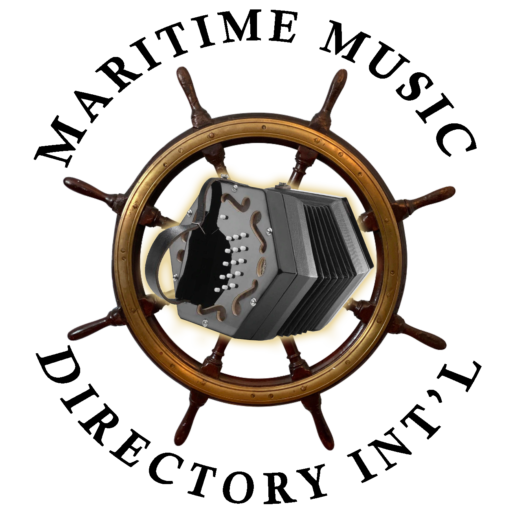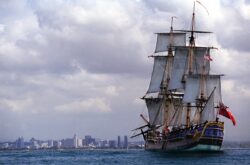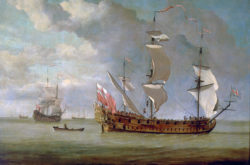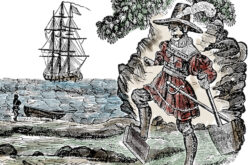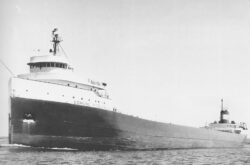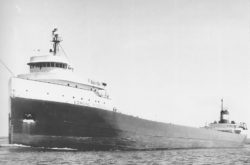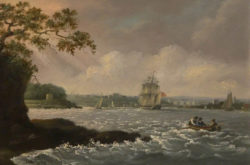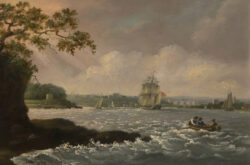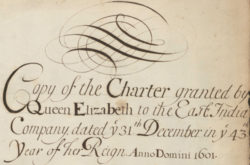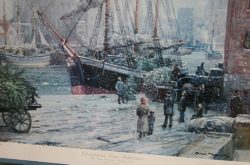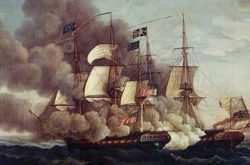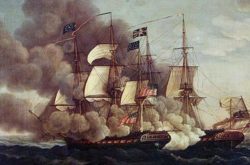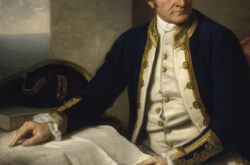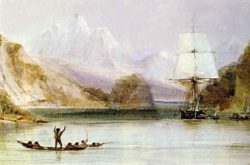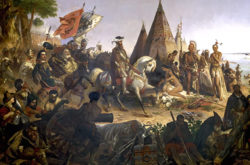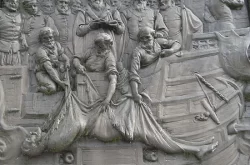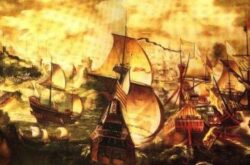Captain Cook Reaches Hawaii 18 Jan, 1778
On January 18, 1778, the English explorer Captain James Cook becomes the first European to travel to the Hawaiian Islands when he sails past the island of Oahu. Two days . . .
Captain Kidd Dies (1701)
At London’s Execution Dock, British privateer William Kidd, popularly known as Captain Kidd, is hanged for piracy and murder.
Born in Strathclyde, Scotland, Kidd established . . .
Captain Kidd Dies (23 May 1701)
On May 23, 1701 the infamous English Pirate, Captain Kidd, dies.
Kidd’s early career is obscure. It is believed he went to sea as a youth. After 1689 he was sailing as . . .
Cargo ship suddenly sinks in Lake Superior (1975)
On November 10, 1975, the SS Edmund Fitzgerald sinks in Lake Superior, killing all 29 crew members on board. It was the worst single accident in Lake Superior’s history.
The . . .
Cargo ship suddenly sinks in Lake Superior (1975)
On November 10, 1975, the SS Edmund Fitzgerald sinks in Lake Superior, killing all 29 crew members on board. It was the worst single accident in Lake Superior’s history.
The . . .
Charles Darwin sets sail from England (27 Dec 1831)
British naturalist Charles Darwin sets out from Plymouth, England, aboard the HMS Beagle on a five-year surveying expedition of the southern Atlantic and Pacific . . .
Charles Darwin sets sail from England (27 Dec 1831)
British naturalist Charles Darwin sets out from Plymouth, England, aboard the HMS Beagle on a five-year surveying expedition of the southern Atlantic and Pacific . . .
Christmas Tree Ship Sinks (1912)
On this day (23 Nov) in 1912, the schooner ROUSE SIMMONS, better known as the Christmas Tree Ship, foundered in Lake Michigan near Two Rivers, Wisconsin. There were no survivors.
The . . .
Congress authorizes privateers to attack British vessels (1776)
Because it lacked sufficient funds to build a strong navy, the Continental Congress gives privateers permission to attack any and all British ships on April 3, 1776.
In a . . .
Construction on the Erie Canal begins 4 July 1817
On July 4, 1817, workers break ground on the Erie Canal at Rome, New York. The canal, completed in 1825, links the eastern seaboard with the Midwest and transforms New York . . .
Continental Congress Creates a Continental Navy (1775)
On Friday, December 22, 1775, the Continental Congress creates a Continental Navy, naming Esek Hopkins, Esq., as commander in chief of the fleet.
Congress also named four . . .
Cook Begins his third voyage (12 July 1776)
James Cook’s third and final voyage took the route from Plymouth via Tenerife and Cape Town to New Zealand and the Hawaiian Islands, and along the North American coast to the Bering Strait.
At . . .
Darwin Returns to Falmouth 2 Oct 1831
The British naturalist Charles Darwin returns to Falmouth, England, aboard the HMS Beagle, ending a five-year surveying expedition of the southern Atlantic and Pacific oceans. Visiting such diverse . . .
De Soto reaches the Mississippi
On May 8, 1541, south of present-day Memphis, Tennessee, Spanish conquistador Hernando de Soto reaches the Mississippi River, one of the first European explorers to ever . . .
Death of Sir Francis Drake (1596)
He died on 28 Jan, 1596 (aged about 56) of dysentery, a common disease in the tropics at the time, while anchored off the coast of Portobelo, Panama,
Before dying, he asked . . .
Defeat Armada 1588
England Defeats Spanish Armada (1588)
On July 29, 1588 England defeats the Spanish Armada
Off the coast of Gravelines, France, Spain’s so-called “Invincible Armada” is defeated by an English naval force under the command of Lord Charles Howard and Sir Francis Drake. After eight hours of furious fighting, a change in wind direction prompted the Spanish to break off from the battle and retreat toward the North Sea. Its hopes of invasion crushed, the remnants of the Spanish Armada began a long and difficult journey back to Spain.
Drake Assaults Cádiz (29 Apr 1587)
In 1585 the tension between the England and Spain erupted into the Anglo-Spanish War of 1585–1604. Philip II ordered the arming of a great military fleet, which was to . . .
Drake Assaults Cádiz (April 29, 1587)
Referred to as the “singeing of the beard” of King Philip II of Spain.
In 1585 the tension between the England and Spain erupted into the Anglo-Spanish War of . . .
Drake Claims California for England (1579)
During his circumnavigation of the world, English seaman Francis Drake anchors in a harbor just north of present-day San Francisco, California, and on 17 June, 1579, claims . . .
